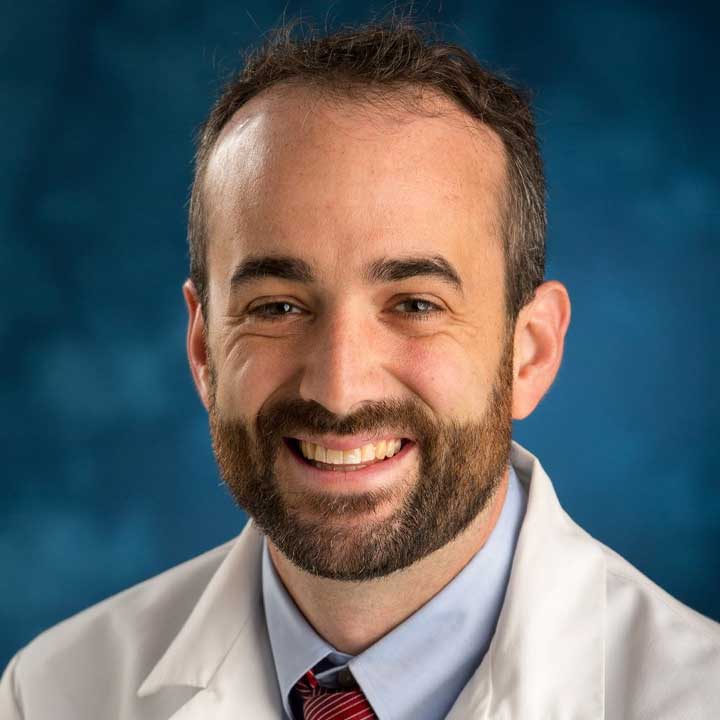
James Burke, MD, MS
- Co-Director, Health Services Research
At The Ohio State University Department of Neurology Division of Health Services Research, we are committed to efforts to optimize the health outcomes and well-being of people with neurological symptoms and disease. Our research aims to better understand health and health care delivery and to develop, evaluate, and implement interventions to improve both health and societal outcomes. We have experience in a variety of research methods including complex analyses of secondary data, development and evaluation of decision support tools, qualitative data acquisition and analyses, and randomized health services research clinical trials.
Housed within the Ohio State Department of Neurology and CATALYST – the Center for the Advancement of Team Science, Analytics, and Systems Thinking in Health Services and Implementation Science Research – the Health Services Research Division is co-directed by Dr. Kevin A. Kerber and Dr. James Burke and supported by Research and Project Managers, data analysts, PhD researchers, and other faculty.
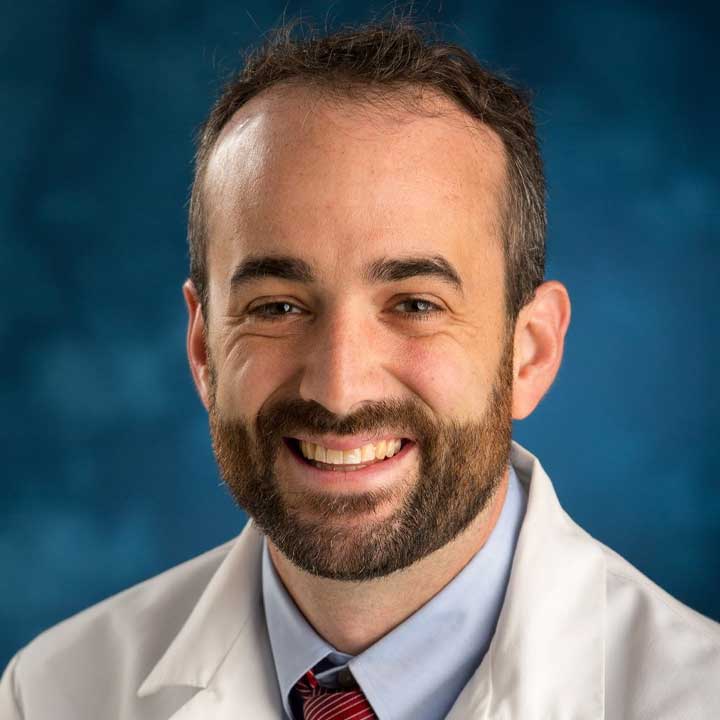
Dr. Jim Burke trained in Neurology and Vascular Neurology at the University of Michigan, completed health services research training through the Robert Wood Johnson Clinical Scholars Program, and served on the faculty of UM before joining Ohio State to co-direct the HSR Neurology Division. Dr. Burke has been continuously funded by the National Institutes of Health, and his research has focused on a variety of topics including individualized treatment decisions, understanding racial disparities in stroke outcomes, and exploring how patient preferences affect health outcomes. Dr. Burke applies advanced statistical methodology to optimize diagnostic and treatment decisions for individual patients.
Dr. Burke’s research has addressed a variety of topics, such as how to best target treatment to individual patients, evaluating the value of neurologic care, understanding how end-of-life preferences influence care, understanding how race disparities emerge after stroke, and evaluating population-level outcomes of varying treatment strategies.
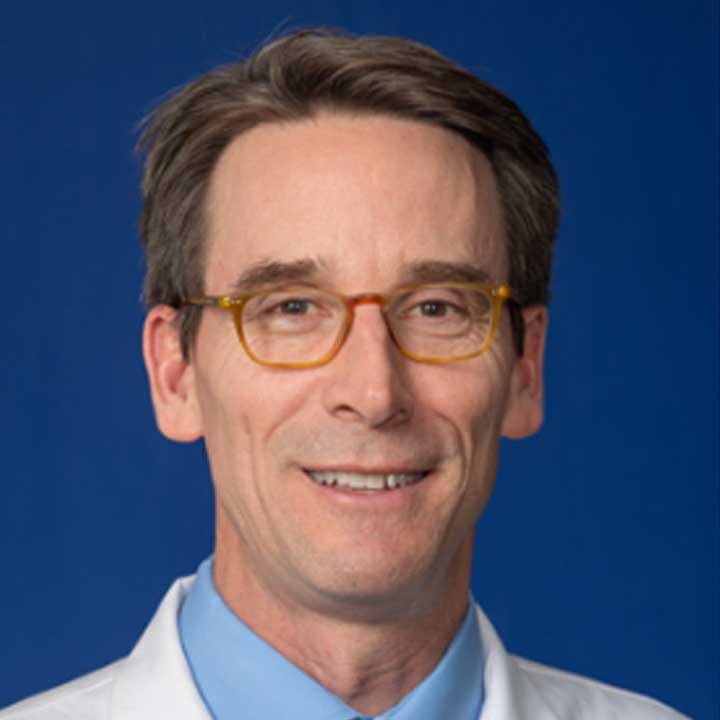
Dr. Kerber trained in neurology at the University of Michigan and neurotology at the University of California, Los Angeles. He completed a master’s degree in Health and Healthcare Research at UM. He was on the faculty of UM before joining Ohio State to co-found the HSR Neurology. His grant funding, from the National Institutes of Health and Agency for Healthcare Research and Quality, has included projects about the clinical epidemiology of dizziness, clinical decision rule development to identify stroke in acute dizziness presentations, health services randomized clinical trials to implement evidence-based care practices in routine care emergency departments, and the development and evaluation of patient-oriented behavioral interventions. He is particularly interested in the development and management of patient-focused resources.
Dr. Kerber currently is collaborating with Kaiser Permanente Southern California on an NIH-funded clinical trial of a provider- and patient-based implementation strategy to optimize management and outcomes for ED dizziness presentations. He has also evaluated payment policies and collaborated with other investigators across a variety of topics including stroke epidemiology, geographic variation in neurologists and neurologic care, and the value of neurologic care. Dr. Kerber serves as a Vice-Chair of Clinical Operations and the Director of the Neuro-otology program.
Traditional biomedical research aims to determine what causes disease and how can it be treated or prevented.1
Health services research asks:
The art of delivering health care is complicated. Health services research produces data, evidence, and tools to make health care accessible, affordable, effective, equitable, patient-centered, and safe. HSR seeks to facilitate getting the right care to the right people at the right time.
Advancement, opportunity, and collaboration describe the research and scholarship efforts in The Department of Neurology and the Health Services Research Division. Our faculty members are engaged in a broad range of multidisciplinary efforts to bolster advances in the practice, teaching, and research of family medicine. Our successes are demonstrated by professional presentations, publications, and grant support. Investigator-initiated research drives the department toward its goal of being a nationally and internationally recognized leader in research and scholarship. Educational initiatives and research continue to produce state-of-the-art curricula, teaching strategies, and learning techniques that advance medical education at many levels, including medical student education, residency training, and continuing medical education. The Ohio State University College of Medicine has as its goal to expand research in health equity, social determinants of health, population health, and health services and implementation science as well as the reduction of health inequities among our patients and communities through care delivery and education. The new faculty member will have an important role in helping the college achieve its goals. For more information and to apply, visit the Health Services Research Fellow posting.
CATALYST is a research center within The Ohio State University College of Medicine focused on advancing transformational research in the delivery of health services across the continuum of care using a team science approach in a dedicated command center. As an innovative and independent center, CATALYST provides a well-recognized hub for health services and implementation science research efforts.
CATALYST has welcomed the Neurology Health Services Research Division into the center, giving the Division access to the world-class expertise and infrastructure available amongst the distinguished and seasoned CATALYST researchers, post-docs, managers, analysts, and affiliated faculty.
Visit the CATALYST website to learn more
With Dr. Ann Scheck McAlearney and Dr. Dan Jonas, Dr. Burke co-leads an HSR training program. This program delivers master’s-level training in health services research methods as part of a project-focused curriculum in combination with focused mentorship to a cohort of clinician trainees.
The Department of Neurology at the Ohio State University has a long history of a dedicated commitment to education. We have world-class faculty and staff, state-of-the-art amenities, and novel technologies, all of which enables trainees to gain experience in the management of complex pathologies and apply innovative and high-quality medical care for a diverse patient population. Learn more about our residency and fellowship programs.

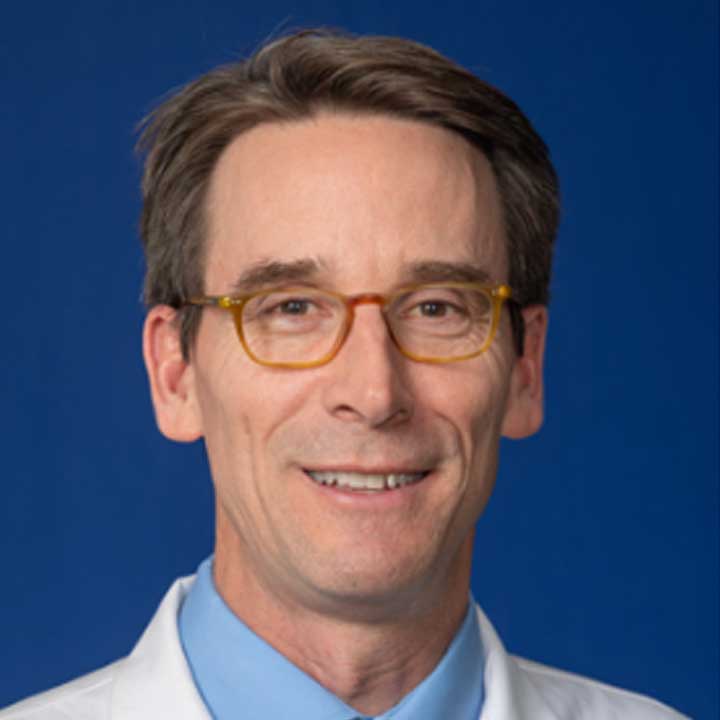



 Chun Chieh "Anna" Lin received her Ph.D. in health services organization and research in 2010 and her MBA in 1998. She has worked with Drs. Burke and Kerber since 2017. Dr. Lin garnered the expertise needed to carry out the role of statistician lead during her Ph.D. program at the Virginia Commonwealth University and as PI or co-investigator during her seven-year tenure as director of Health Services Research at the American Cancer Society. During her six-year tenure as an assistant research scientist at the University of Michigan Medical School, Department of Neurology, Health Services Research Program, Dr. Lin actively and successfully applied her expertise in health services research for collaborative projects with MPIs at the medical school.
Chun Chieh "Anna" Lin received her Ph.D. in health services organization and research in 2010 and her MBA in 1998. She has worked with Drs. Burke and Kerber since 2017. Dr. Lin garnered the expertise needed to carry out the role of statistician lead during her Ph.D. program at the Virginia Commonwealth University and as PI or co-investigator during her seven-year tenure as director of Health Services Research at the American Cancer Society. During her six-year tenure as an assistant research scientist at the University of Michigan Medical School, Department of Neurology, Health Services Research Program, Dr. Lin actively and successfully applied her expertise in health services research for collaborative projects with MPIs at the medical school.
Dr. Lin has extensive experience in the development, analysis, and methodological aspects of neurological health services research. She has specific training and expertise in survey studies, large administrative datasets, clinical epidemiology, health outcomes research, and multiple analytic techniques. Dr Lin has 60+ publications in peer-reviewed journals and has delivered presentations at several national conferences. Dr. Lin's research interests include geographic variation in access to care, health services research, clinical epidemiology, workforce demand/supply, comparative treatment effectiveness studies, health outcomes research, and examination of the factors associated with treatment disparities among underserved patients.
 Ran Bi received her graduate degree in Applied Statistics from the University of Michigan and her undergraduate degrees in Applied Mathematics and Statistics from University of California Los Angeles. She worked as a data analyst at Department of Neurology at the University of Michigan after graduation. Currently, Ran serves as the Reporting and Analytics Analyst for the Health Services Research Division, assisting Drs. Burke, Kerber, and Lin with data management and analysis for a variety of health-related datasets. She is interested in analyzing complex health care data and investigating the factors associated with health outcomes.
Ran Bi received her graduate degree in Applied Statistics from the University of Michigan and her undergraduate degrees in Applied Mathematics and Statistics from University of California Los Angeles. She worked as a data analyst at Department of Neurology at the University of Michigan after graduation. Currently, Ran serves as the Reporting and Analytics Analyst for the Health Services Research Division, assisting Drs. Burke, Kerber, and Lin with data management and analysis for a variety of health-related datasets. She is interested in analyzing complex health care data and investigating the factors associated with health outcomes.
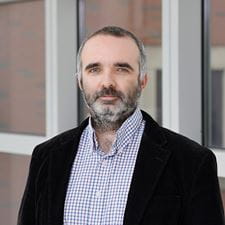 Dr. Deligkaris has a PhD in Physics with Specialization in Computational Sciences from Purdue University and is now a Data Analytics Specialist for the Neurology Health Services Research Division and the CATALYST, the Center for the Advancement of Team Science, Analytics, and Systems Thinking in Health Services and Implementation Science Research. Dr. Deligkaris has years of experience programming, creating data visualizations, and conducting computational research resulting in peer-reviewed publications and presentations at national conferences. Dr. Deligkaris enjoys learning and mastering cutting-edge methods and algorithms. Dr. Deligkaris works closely with Drs. Burke and Kerber on exciting projects that aim to optimize neurological health outcomes and services. He is highly committed to the success of the team and applies his knowledge and experience to propel projects forward.
Dr. Deligkaris has a PhD in Physics with Specialization in Computational Sciences from Purdue University and is now a Data Analytics Specialist for the Neurology Health Services Research Division and the CATALYST, the Center for the Advancement of Team Science, Analytics, and Systems Thinking in Health Services and Implementation Science Research. Dr. Deligkaris has years of experience programming, creating data visualizations, and conducting computational research resulting in peer-reviewed publications and presentations at national conferences. Dr. Deligkaris enjoys learning and mastering cutting-edge methods and algorithms. Dr. Deligkaris works closely with Drs. Burke and Kerber on exciting projects that aim to optimize neurological health outcomes and services. He is highly committed to the success of the team and applies his knowledge and experience to propel projects forward.
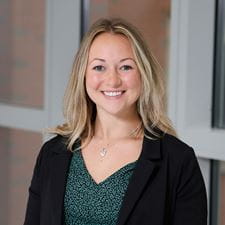 Rachel Ernst graduated from The Ohio State University in May 2022 with bachelor’s degrees in Biology and Public Health. During her undergraduate education, she worked as a Student Assistant at an Ohio State COVID-19 Testing Center and volunteered with Franklin County Medical Reserve Corps to assist in the COVID-19 vaccine rollout. She stayed engaged with the Ohio State community as a Wellness Ambassador at the Student Wellness Center, where she presented health and wellness seminars to her peers. Rachel supports the work of the division with a particular focus on protocol development, data collection, and participant recruitment and retention. She is keenly interested in research that aims to improve quality of life for vulnerable populations.
Rachel Ernst graduated from The Ohio State University in May 2022 with bachelor’s degrees in Biology and Public Health. During her undergraduate education, she worked as a Student Assistant at an Ohio State COVID-19 Testing Center and volunteered with Franklin County Medical Reserve Corps to assist in the COVID-19 vaccine rollout. She stayed engaged with the Ohio State community as a Wellness Ambassador at the Student Wellness Center, where she presented health and wellness seminars to her peers. Rachel supports the work of the division with a particular focus on protocol development, data collection, and participant recruitment and retention. She is keenly interested in research that aims to improve quality of life for vulnerable populations.
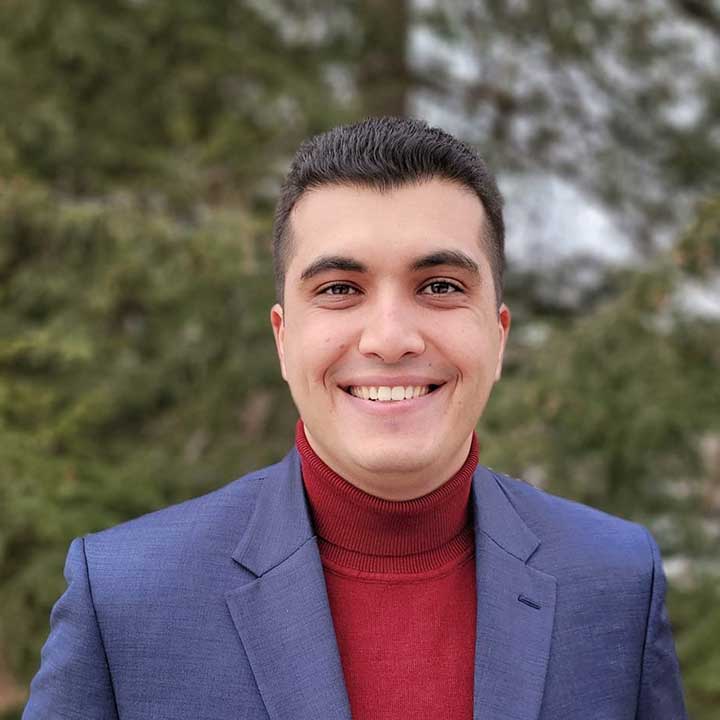 Dr. Hailat completed his PhD training in Health Services Research and Epidemiology at Michigan State University. His dissertation, which focused on stroke outcomes, was funded by a predoctoral fellowship from the American Heart Association. He also received an MPH in Epidemiology and training in Humanitarian Emergencies from the Rollins School of Public Health at Emory University. Additionally, he earned his MD degree from Jordan University of Science and Technology, where he completed his general practitioner clinical training.
Dr. Hailat completed his PhD training in Health Services Research and Epidemiology at Michigan State University. His dissertation, which focused on stroke outcomes, was funded by a predoctoral fellowship from the American Heart Association. He also received an MPH in Epidemiology and training in Humanitarian Emergencies from the Rollins School of Public Health at Emory University. Additionally, he earned his MD degree from Jordan University of Science and Technology, where he completed his general practitioner clinical training.
Dr. Hailat is a post-doctoral scholar working on health services research projects related to both inpatient and outpatient neurological care. Dr. Hailat has expertise in data linkage, health outcomes research, prediction modelling, and comparative effectiveness studies. He is also skilled in analyzing large administrative and registry-based datasets. His research interests include clinical epidemiology, health services research, and the geographic variation in stroke risk and access to specialized neurological care.
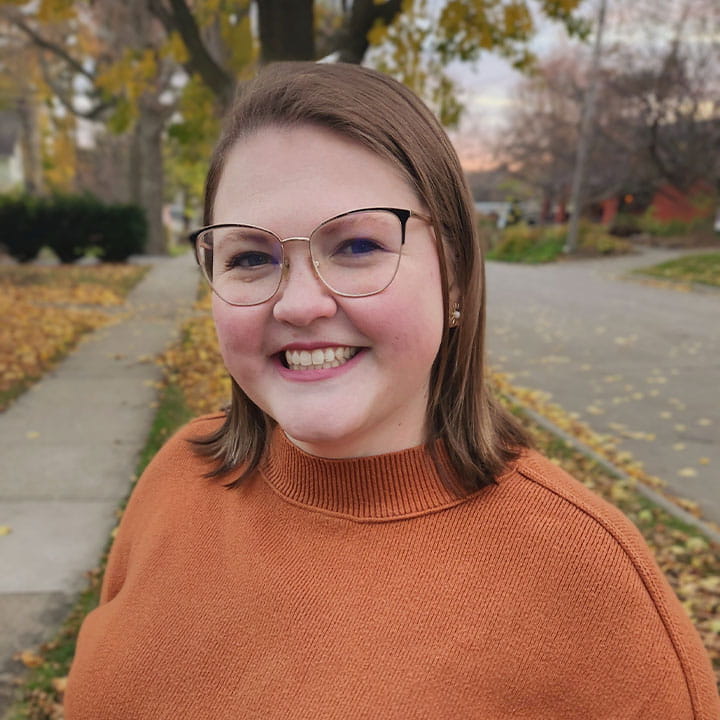 Dr. Ogilvie received her PhD in Epidemiology from the University of Iowa in 2023 and completed a T32 Postdoctoral Fellowship in Palliative Care and Aging research at the University of Colorado in 2025. Dr. Ogilvie’s research centers on developing a greater understanding of the intersection between neurological and palliative health services provided for patients with neurodegenerative conditions. The research performed during her doctoral and postdoctoral training primarily focused on understanding healthcare utilization among patients with Huntington’s disease and their care partners, particularly during the late stages of the disease. Dr. Ogilvie has expertise in the use of large, observational datasets, longitudinal data analysis, clinical epidemiology, and pharmacoepidemiology. She has also developed an interest in the use of mixed methods research to assess quality of care.
Dr. Ogilvie received her PhD in Epidemiology from the University of Iowa in 2023 and completed a T32 Postdoctoral Fellowship in Palliative Care and Aging research at the University of Colorado in 2025. Dr. Ogilvie’s research centers on developing a greater understanding of the intersection between neurological and palliative health services provided for patients with neurodegenerative conditions. The research performed during her doctoral and postdoctoral training primarily focused on understanding healthcare utilization among patients with Huntington’s disease and their care partners, particularly during the late stages of the disease. Dr. Ogilvie has expertise in the use of large, observational datasets, longitudinal data analysis, clinical epidemiology, and pharmacoepidemiology. She has also developed an interest in the use of mixed methods research to assess quality of care.
Our funding portfolio consists of federally funded grants and foundation grants.
We are deeply committed to mentoring, particularly ensuring a vibrant research environment aligned with our mentees’ goals.
Health Services Research is multidisciplinary research that draws on the expertise of neurologists, economists, biostatisticians, epidemiologists, sociologists data scientists, and a variety of disciplines. We welcome candidates from diverse training and experiential backgrounds.
If you are interested in learning more about training or faculty position opportunities, contact Rachel Ernst at rachel.ernst@osumc.edu.
1 Holloway RG, Ringel SP. Narrowing the evidence-practice gap: strengthening the link between research and clinical practice. Neurology 1998;50:319–321. [PubMed] [Google Scholar]
2 Dahodwala N, Meyer AC. Emerging subspecialties in neurology: health services research. Neurology. 2010 Mar 9;74(10):e37-9. doi: 10.1212/WNL.0b013e3181d31e6f. PMID: 20211903; PMCID: PMC2839192